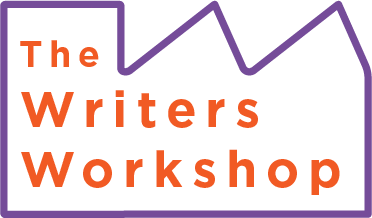Writing is thinking; it’s crystallised life
Meet Writers Workshop member Dan Olner, a postdoctoral researcher in economic geography and science fiction writer, who’s currently deciding what path to take with his novel. He talked to us about the fork in the creative road where he finds himself, and the vital role community has played in his writing journey so far.
What projects are you working on?
Over the past four years, I’ve written a science fiction book, The Looking Skin, which explores ideas about conscious sensation, for example how we experience the ‘redness’ of the colour red. I’ve worked hard to make it a good yarn, and there’s a big strand of ‘body horror’ in there. It’s had one round of agent rejections, including one full manuscript request then rejection, and I’m currently deciding between another round of submissions or self-publishing. I believe in the book, and I’m really proud of it. I pushed myself hard to craft the story I wanted - one I’d like to read.
What drives your writing?
I love to make readers think about the world in a slightly different way. I also ended up putting a lot of personal stuff in there threaded through the ideas. It’s impossible to write without drawing on our own experiences, it turns out, so if it makes someone feel a connection, I’d be happy.
I find inspiration in chance encounters, places I’ve travelled, random ideas. With the book, two small ideas were beguiling enough to pull me all the way to the finish line: if I can hitch myself to ideas like that, I’m always inspired. I’m not sure I’d know what I thought or felt if I didn’t write. Writing is thinking. It’s crystallised life.
What role has community played in your writing life so far?
Community is vital for my writing. This completely contradicts the stereotype of a hermit in a freezing attic typing away; a stereotype I used to buy into. There are, of course, large chunks of the writing life that have to be solitary, but it doesn’t define it. The positivity, mutual support, shared lamenting and shared celebrating of The Writers Workshop has been invaluable to me. After I had a couple of mentoring sessions from Beverley and The Writers Workshop emerged during lockdown, it was a no-brainer to join a community in my home city of Sheffield.
How do you approach writing projects?
There’s this idea of writers being either ‘pantsers’ (flying by the seat of your pants and writing as you go) vs. ‘planners’ (those who plot out before they begin), but it’s not so binary. I wrote scenes in a very nonlinear way to start with, just pantsing it, with most scenes being cut. But regularly I’d need to focus and think about where the whole was going.
The final book emerged from that tension, a push/pull between freeform writing and plotting, planning, scheming, research and thinking. I loved learning to surf that process, with no way of predicting where it would go. Much of the result has been a surprise to me. That seems like magic. I wonder if I’d have missed out on that if I’d done too much planning.
What challenges have you encountered?
The biggest challenge to my writing is when the doubts emerge. Oh, good God, the doubts! Many times during the past few years I hit a wall, with no idea how to progress and organise a jumble of pieces that didn’t fit. It’s at these points that community is so essential. Just the simple act of showing up to writing sessions, talking through it or having a good whinge, can thaw those blocks.
One other challenge is psychological. I’m not yet open about being a fiction writer - although I guess this profile changes that! My colleagues in academia would think it madness - spending time writing that should have been spent publishing papers?! Perhaps they’re right. But another outcome of having written this book is that it’s changed my priorities in ways I’m still trying to understand.

